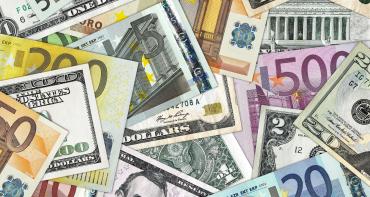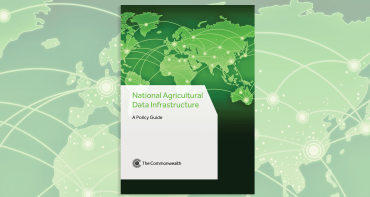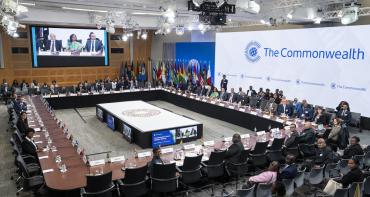An ambitious international project to help Caribbean countries unlock the full economic potential of the seas took a step closer with a meeting of international partners at the Commonwealth’s headquarters last week.
An ambitious international project to help Caribbean countries unlock the full economic potential of the seas took a step closer with a meeting of partners at the Commonwealth’s headquarters last week.
The Caribbean Regional Oceanscape Project (CROP) is being developed by the World Bank in conjunction with the Organisation of Eastern Caribbean States (OECS) and Commonwealth Secretariat.
It is set to support five countries: Grenada, Saint Kitts and Nevis, Saint Lucia, Saint Vincent and the Grenadines and Dominica.
The project will assist the island nations to transition towards a ‘blue economy’ economic model, where sustainable ocean-based industries help to deliver jobs, reduce poverty and ensure shared prosperity across the region.
The conference of international stakeholders at Marlborough House, organised by the Commonwealth Secretariat and the World Bank, brought together the OECS Commission with partners and donors from the UK for a coordination meeting.
Dr Pawan Patil, Senior Economist for @WorldBank talks about why the World bank and #Commonwealth are focusing on the #Blueeconomy. pic.twitter.com/WK87ya8csm
— The Commonwealth (@commonwealthsec) February 22, 2017
Jeff Ardron, Ocean Governance Adviser at the Commonwealth Secretariat said the purpose of the meeting was to ensure close coordination and help deliver essential funding for the new initiative. “The blue economy is like the ‘holy grail’ of sustainable maritime economic development. It will only be achieved through perseverance, lateral thinking, and collaboration,” Mr Ardron said.
“Putting into practice the shared aims of a blue economy will be a group effort from national, to regional, to international scales. The Commonwealth Secretariat is pleased to be a part of this wider effort.”
Dr Pawan Patil, Senior Economist for the World Bank, said that both his organisation and the Commonwealth Secretariat had recognised “the need and interest of countries to derive sustainable economic value from their ocean space.”
“The blue economy is a frontier area for sustainable development for the future,” Dr Patil added.
Last year, the World Bank in association with the Commonwealth Secretariat launched a report highlighting just how important this ‘blue economy’ is to the Caribbean. The Caribbean Sea covers an area of 2.75 million square kilometres and is a crucial resource for the 40 million people who inhabit its many small islands.
Toward a Blue Economy: A Promise for Sustainable Growth in the Caribbean argued that creating a blue economy in the Caribbean will require major investments of capital and political will and take decades to complete.
Partners attending last week’s meeting included the Centre for Environment, Fisheries and Aquaculture Science (Cefas), the Foreign and Commonwealth Office (UK Government), the National Oceanography Centre (NOC), the Organisation of Eastern Caribbean States (OECS Commission), and the UK Hydrographic Office (UKHO).



